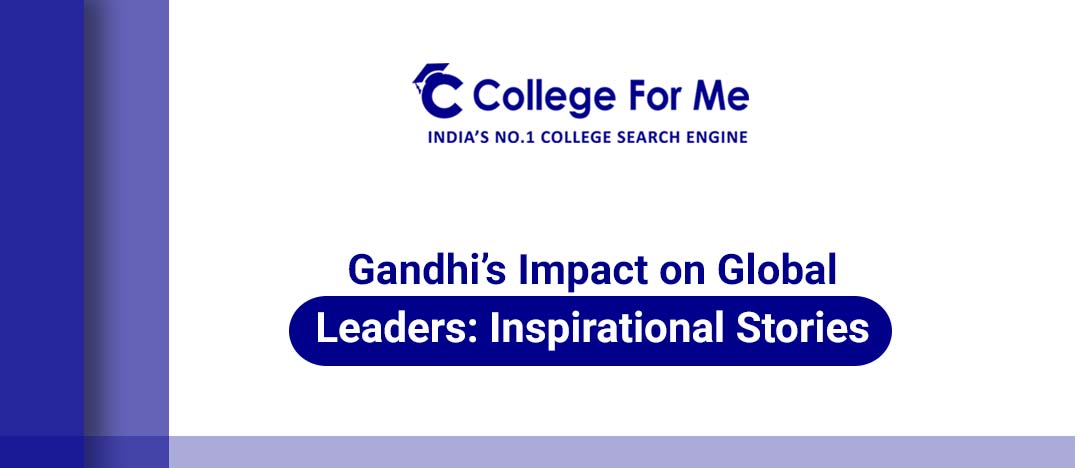Career Scopes Of A B.Tech. Student
There is a high demand for B.Tech. degree holders in the private sector, yet, there is also the opti...

Mahatma Gandhi, the iconic leader of the Indian independence movement, was not just a national hero but a global inspiration. His philosophy of non-violence, civil disobedience, and peaceful resistance left a profound impact on leaders worldwide. In this blog post, we will explore the remarkable stories of international figures who were influenced by Gandhi’s teachings and how they applied his principles in their own struggles for justice and freedom.
Nelson Mandela: Embracing Peace in South Africa
Nelson Mandela, the revered leader of the anti-apartheid movement in South Africa, was greatly influenced by Gandhi’s methods of non-violent protest. Mandela admired Gandhi’s resilience and applied his principles during the struggle against apartheid, eventually leading South Africa to a peaceful transition to majority rule.
Martin Luther King Jr.: Non-Violence in the Civil Rights Movement
Martin Luther King Jr., the face of the American civil rights movement, found inspiration in Gandhi’s philosophy of non-violence. King adapted these principles to champion the cause of racial equality and justice in the United States. His adoption of Gandhian methods, including peaceful protests and civil disobedience, led to significant legislative changes and paved the way for civil rights in America.
Cesar Chavez: Farmworkers' Rights and Non-Violent Resistance
Cesar Chavez, the American labor leader and civil rights activist, applied Gandhi’s teachings in his fight for the rights of farmworkers. Chavez employed non-violent tactics, such as boycotts and hunger strikes, to protest against unfair labor practices. His dedication to non-violence mirrored Gandhi’s approach and resulted in improved conditions for farmworkers in the United States.
Aung San Suu Kyi: Peaceful Resistance in Myanmar
Aung San Suu Kyi, the Nobel laureate and pro-democracy leader in Myanmar, drew inspiration from Gandhi’s non-violent resistance in her fight against the oppressive military regime. Despite facing years of house arrest, Suu Kyi remained steadfast in her commitment to non-violence, echoing the principles of Gandhi and inspiring a global audience with her resilience.
Albert Einstein: Science and Social Responsibility
Albert Einstein, a renowned physicist, was deeply influenced by Gandhi’s ideas of peace and non-violence. Although not directly involved in political activism, Einstein advocated for social justice and disarmament. He recognized the importance of applying scientific knowledge to the betterment of humanity, aligning with Gandhi’s vision of a harmonious world.
The legacy of Mahatma Gandhi reverberates across the globe through the lives of these extraordinary leaders. Their stories remind us that the principles of non-violence, truth, and justice are universal and timeless. Gandhi’s impact on these global figures showcases the power of peaceful resistance in bringing about transformative change. As students, these stories serve as a beacon of inspiration, illustrating the potential of ordinary individuals to create extraordinary movements rooted in the teachings of the Mahatma. Let these narratives inspire you to be agents of positive change, embracing the principles of non-violence and empathy in your own lives and communities.

There is a high demand for B.Tech. degree holders in the private sector, yet, there is also the opti...

If you are looking for a bright and prospective career, then getting a B.Tech. in CSE must be under ...
Comments (0)